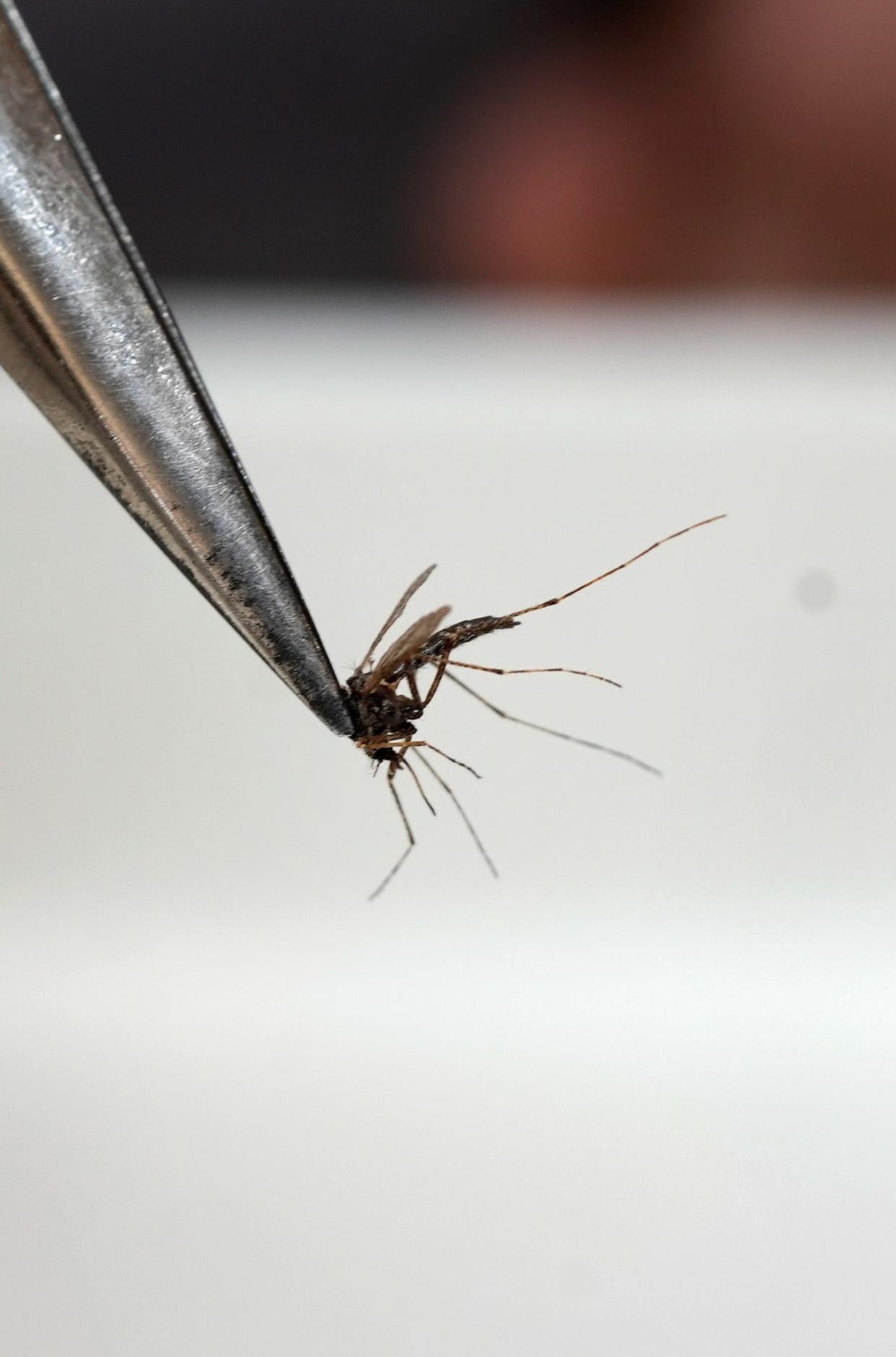NJ confirms two West Nile deaths, four other cases as mosquito-borne viruses spread
Six new West Nile virus cases have been reported in New Jersey, with two infections leading to deaths, officials announced on Friday.
The two individuals who died from the mosquito-spread illness were older adults from Cumberland and Mercer counties. Four other cases were spread across the state, with one apiece in Bergen, Camden, Hudson and Middlesex counties, the state Health Department said in a statement.
In addition, routine testing confirmed the West Nile virus in three blood donors in Bergen, Passaic and Somerset counties, officials added.
West Nile virus has been detected in the U.S. for the last 25 years, but health officials say it's shown up earlier than usual in New Jersey this year, with the first two human cases reported in the state in early July. Another, rarer mosquito-spread illness, Eastern equine encephalitis, has also returned this year, with the state's first confirmed human infection since 2019.

That case involved an 18-year-old patient in Atlantic County who was hospitalized and later discharged. Last week, officials in Rockaway Township in Morris County also alerted residents that EEE was found in a mosquito pool in the northern part of town near Valley Road.
How dangerous are West Nile and EEE?
Among the eight confirmed West Nile cases in New Jersey so far, seven led to hospitalizations with a neuroinvasive disease − including encephalitis, a swelling of the brain − or meningitis, the swelling of the lining surrounding the brain and spinal cord, the state said.
Most West Nile cases are reported between mid-August and mid-September in New Jersey. But the virus has been circulating much earlier this year, due in part to a rainy spring followed by a very warm start to summer, which provided the perfect conditions for mosquitoes to reproduce. Mosquito season can last well into October.
People catch West Nile and Eastern equine encephalitis through the bite of a mosquito that has fed on an infected bird or other animal.
Most infected with the viruses have no symptoms, but those who do may experience fever, chills, body aches, and joint pains, the state said. In rare cases, people may develop severe neurological illness, often meningitis or encephalitis. Symptoms may also include severe fever, headache, neck stiffness, vomiting, diarrhea, seizures, behavioral changes or confusion, limb weakness and fatigue.
How to protect yourself
The New Jersey Department of Health advises these methods for precautions of both viruses.
Wear EPA-registered insect repellent.
Avoid being outdoors during dawn and dusk when mosquitoes are most active.
Wear long sleeves and long pants.
Cover cribs, strollers and baby carriers with mosquito netting.
Repair holes in screens to keep mosquitoes outside and use air conditioning when possible or ensure you have well-fitted screens.
The department also advised people to empty or change any outdoor, standing pools of water on at least a weekly basis to stop mosquitos from breeding.
"“All New Jerseyans should be aware of the potential significant impacts from mosquito-borne illnesses, especially West Nile virus and Eastern Equine encephalitis. The best way to prevent these diseases is to avoid mosquito bites by using insect repellent, protective clothing or gear, and avoiding peak mosquito hours,” said New Jersey Health Commissioner Kaitlan Baston.
This article originally appeared on NorthJersey.com: NJ reports two West Nile deaths, four other cases and urges caution
